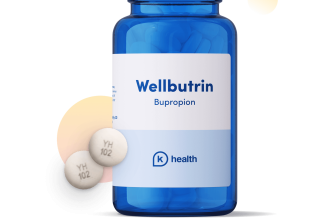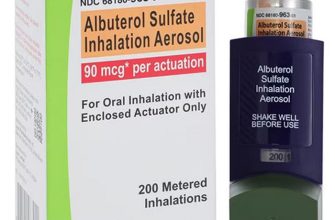Need a prescription refill? Skip the long lines and appointments. Many reputable online pharmacies offer convenient prescription services, letting you manage your medication from the comfort of your home. We’ll show you how to choose a safe and reliable provider, ensuring your health information remains protected and your medications arrive quickly.
Consider factors like pharmacy licensing and accreditation. Verify the legitimacy of the online pharmacy by checking their state registration and any relevant accreditations from organizations like the National Association of Boards of Pharmacy (NABP). Look for pharmacies with robust security measures, including SSL encryption for secure data transmission. A transparent privacy policy outlining how your data is handled is crucial.
Always confirm your doctor’s participation in telehealth services before initiating an online prescription. Many physicians offer virtual consultations, simplifying the process. If you’re unsure about a specific pharmacy’s reputation, research online reviews and testimonials from other patients. A reliable pharmacy should provide clear communication and readily available customer support. Choosing wisely protects your health and ensures a smooth experience.
- Online Prescriptions: A Comprehensive Guide
- Legal Aspects of Online Prescriptions
- Finding a Reputable Online Pharmacy
- The Process of Obtaining an Online Prescription
- Choosing a Platform
- After the Consultation
- Common Medications Available Online
- Cost Comparison: Online vs. Traditional Pharmacies
- Security and Privacy Concerns with Online Prescriptions
- Protecting Your Personal Information
- Prescription Accuracy and Authentication
- Data Breaches and Their Impact
- Potential Risks and Benefits of Online Pharmacies
- Benefits: Convenience and Accessibility
- Risks: Safety and Legitimacy
- Comparison Table:
- Recommendation: Due Diligence
- Managing Your Online Prescription Medications
Online Prescriptions: A Comprehensive Guide
Choose a telehealth platform with robust security features, including HIPAA compliance and encryption.
Next, verify the platform’s legitimacy. Check for licensing and accreditation information. Look for reviews from other users and confirm the doctor’s credentials independently. Don’t hesitate to contact the platform directly with questions.
- Doctor Verification: Always independently confirm your doctor’s license and experience.
- Platform Security: Prioritize platforms with strong security protocols, including data encryption and HIPAA compliance.
- Medication Delivery: Research delivery options and associated costs before starting. Understand the delivery timeframe and any potential delays.
Fill out the required medical history forms completely and accurately. This assists the doctor in making an informed decision. Omitting information might delay or prevent prescription fulfillment.
- Provide accurate information regarding allergies and current medications.
- Clearly describe your symptoms and medical concerns.
- Be prepared to answer questions about your lifestyle and health habits.
After the consultation, carefully review the prescription. Check the medication name, dosage, and instructions. Contact the platform immediately if you have any questions or concerns. Report any errors or discrepancies without delay.
Finally, store your prescriptions securely. Maintain a record of your online prescriptions for future reference. Consider using a password-protected document or secure online storage.
- Prescription Records: Keep a detailed record of all online prescriptions, including dates and dosages.
- Secure Storage: Store your prescription information securely to protect your personal data.
Legal Aspects of Online Prescriptions
Check your state’s laws regarding telehealth and online prescriptions. Regulations vary significantly.
Verify the prescribing doctor’s license. Confirm their registration with your state’s medical board to ensure legitimacy.
Understand the pharmacy’s legal compliance. Make sure they’re licensed to fill online prescriptions in your location and adhere to all relevant federal and state regulations. Check for accreditation from reputable organizations.
Review the online pharmacy’s privacy policy. Ensure your Protected Health Information (PHI) is handled securely and in compliance with HIPAA regulations (in the US).
Be aware of potential legal ramifications for obtaining prescriptions fraudulently. Misrepresenting your identity or medical history carries serious consequences.
Consult a lawyer if you have questions about the legality of a specific online prescription service or encounter any legal issues.
Always retain records of your online prescription transactions. These can be useful evidence in case of disputes or regulatory inquiries.
Familiarize yourself with the controlled substance regulations in your area. Online prescriptions for controlled substances are subject to stricter rules.
Finding a Reputable Online Pharmacy
Check the pharmacy’s license and accreditation. Verify this information independently through the relevant state board of pharmacy or an accreditation organization like the Verified Internet Pharmacy Practice Sites (VIPPS).
Look for secure payment gateways. Reputable pharmacies use SSL encryption (indicated by “https” in the URL and a padlock icon). Never submit payment information on a site without this security.
Read independent reviews. Sites like Trustpilot and independent pharmacy review sites offer insights into customer experiences. Pay close attention to reviews mentioning customer service, order fulfillment and prescription accuracy.
Confirm the pharmacy’s physical address and contact information. A legitimate pharmacy will readily provide verifiable contact details and a physical address, not just a PO box.
Review their privacy policy. Understand how the pharmacy handles your personal and medical information. Choose a pharmacy with a transparent and secure privacy policy.
Contact the pharmacy directly. Ask questions about their procedures, prescription fulfillment times, and return policies. Assess the responsiveness and professionalism of their customer service.
Avoid pharmacies that offer suspiciously low prices or don’t require prescriptions. These are common red flags associated with illegal online pharmacies.
The Process of Obtaining an Online Prescription
First, find a telehealth platform or online clinic licensed in your state. Check their credentials and read reviews. Many platforms specialize in specific areas, so choose one that suits your needs.
Choosing a Platform
Consider factors like the range of medications offered, doctor availability, and the platform’s privacy policies. Some platforms offer virtual consultations via video chat, while others rely on questionnaires and message exchanges. Select a method that you’re comfortable with.
Next, create an account and complete a detailed health profile. Be thorough and accurate in providing your medical history, current medications, and allergies. Accurate information is paramount for receiving safe and effective treatment.
Then, schedule a virtual consultation with a licensed physician. During this consultation, discuss your health concerns and answer the doctor’s questions truthfully. Don’t hesitate to ask questions–clear communication is key.
After the Consultation
Following the consultation, the doctor will review your information and determine if an online prescription is appropriate. If approved, the prescription will usually be sent electronically to your chosen pharmacy. Some platforms offer prescription delivery services.
Finally, pick up your prescription from your pharmacy or arrange for delivery. Always follow the prescribed dosage and instructions carefully. Consult your doctor if you experience any adverse effects.
Remember to keep records of all online consultations and prescriptions for your own reference. This can be useful if you need to consult other healthcare providers in the future.
Common Medications Available Online
Many pharmacies offer online prescriptions for common conditions. You can often find medications for allergies, like Cetirizine (Zyrtec) or Fexofenadine (Allegra), conveniently delivered to your door.
For managing common colds and the flu, pharmacies frequently provide online access to medications containing acetaminophen (Tylenol) or ibuprofen (Advil). Always follow dosage instructions.
Many also stock treatments for acid reflux, such as omeprazole (Prilosec). Remember to consult your doctor if symptoms persist.
Birth control pills are another frequently prescribed medication available online. Always ensure you receive a consultation with a licensed healthcare provider before starting or changing birth control.
Note: This list isn’t exhaustive, and availability varies by pharmacy and location. Always verify a pharmacy’s legitimacy and check for licensing information before ordering. Consult your doctor or pharmacist before starting any new medication, even those available online.
Disclaimer: This information is for general knowledge and does not constitute medical advice. Always seek professional medical guidance for your specific health concerns.
Cost Comparison: Online vs. Traditional Pharmacies
Generally, online pharmacies offer lower prices than brick-and-mortar stores. This is often due to lower overhead costs.
Consider these factors:
- Prescription drug costs: Use online prescription comparison tools to check prices across multiple online and local pharmacies for your specific medication. Significant differences exist. Always verify the pharmacy’s legitimacy.
- Shipping fees: Online pharmacies typically charge for shipping. Factor this into your total cost. Some offer free shipping with minimum order values. Compare these fees across different platforms.
- Convenience fees: Some online pharmacies may add convenience fees. Review their pricing structures carefully to identify all charges.
- Discounts and coupons: Both online and traditional pharmacies often offer discounts and coupons. Actively seek these opportunities for potential savings, as they frequently differ.
- Insurance coverage: Check if your insurance covers prescriptions filled at online pharmacies. Coverage policies vary considerably.
Here’s a simplified example:
- Scenario: A month’s supply of medication costs $50 at a local pharmacy and $45 plus $5 shipping ($50 total) at an online pharmacy.
- Conclusion: In this case, the online pharmacy offers a marginally better price; however, this depends on individual drug prices and shipping costs, which fluctuate.
Recommendation: Always compare prices across multiple online and local pharmacies using price comparison tools. Account for shipping and any other potential fees. Verify the legitimacy of any online pharmacy before making a purchase.
Security and Privacy Concerns with Online Prescriptions
Choose telehealth platforms with strong security measures. Look for certifications like HIPAA compliance in the US, or equivalent data protection standards in your country. This verifies they meet specific security requirements for protecting patient health information.
Protecting Your Personal Information
Never share your login details with anyone. Use strong, unique passwords, and enable two-factor authentication wherever possible. This adds an extra layer of security, making it significantly harder for unauthorized access to your data. Report any suspicious activity immediately to the platform and your healthcare provider.
Prescription Accuracy and Authentication
Verify the legitimacy of online pharmacies. Check their licensing and accreditation through your local regulatory bodies. Be cautious of unusually low prices or pharmacies lacking physical addresses. Always confirm your prescription details match what your doctor prescribed. Mismatched or incomplete information could indicate a fraudulent operation.
Data Breaches and Their Impact
Understand the platform’s data breach response plan. A well-defined plan outlines how they’ll handle a potential breach, including notifying affected individuals. Consider the potential consequences of a data breach – identity theft, medical fraud, or even the exposure of sensitive personal details.
Potential Risks and Benefits of Online Pharmacies
Carefully weigh the pros and cons before using online pharmacies. Prioritize licensed and verified pharmacies to minimize risks.
Benefits: Convenience and Accessibility
Online pharmacies offer unmatched convenience. You can order medications from anywhere with internet access, eliminating travel to brick-and-mortar stores. This is especially beneficial for people with mobility issues or those living in rural areas with limited access to healthcare.
Many online pharmacies offer competitive pricing and discounts, potentially saving you money on prescription drugs. Compare prices before ordering to confirm savings.
Risks: Safety and Legitimacy
The biggest concern is the potential for counterfeit or substandard medications. Always verify the pharmacy’s legitimacy with your regulatory body (e.g., the FDA in the US, MHRA in the UK). Look for a physical address and contact information.
Data privacy is paramount. Ensure the online pharmacy uses robust security measures to protect your personal and medical information. Check for encryption protocols (HTTPS) and privacy policies before submitting any data.
The lack of a direct consultation with a physician presents a risk. Ensure that any online prescription service includes a consultation with a licensed medical professional before dispensing medication.
Comparison Table:
| Factor | Benefit | Risk |
|---|---|---|
| Cost | Potentially lower prices | Hidden fees or inflated costs from unregulated pharmacies |
| Convenience | Access from anywhere | Potential delays in shipping or delivery issues |
| Privacy | Discreet ordering | Data breaches and unauthorized access to personal information |
| Safety | Secure pharmacies offer legitimate medications | Counterfeit or substandard drugs from illegitimate sites |
Recommendation: Due Diligence
Always research an online pharmacy thoroughly before ordering. Check reviews, verify licensing, and ensure secure payment options. If you have concerns, discuss your options with your doctor or pharmacist. Prioritizing your health and safety is key.
Managing Your Online Prescription Medications
Keep your medications in a cool, dry place, away from direct sunlight and moisture. This extends their shelf life and ensures their efficacy.
Use a pill organizer to manage daily dosages. This simple tool prevents missed doses and helps maintain a consistent medication schedule. Different compartments allow for easy tracking of multiple prescriptions.
Regularly check the expiration dates on your medications. Discard any expired drugs properly; many pharmacies offer safe disposal programs.
Maintain a detailed record of your prescriptions. Include medication names, dosages, frequencies, and refill dates. This record proves invaluable during doctor visits or emergencies.
Communicate openly with your doctor and pharmacist about any potential interactions or side effects. Proactive communication is key for optimal health outcomes.
Store your online pharmacy order confirmations and prescription details digitally in a secure, password-protected location. This creates easy access when needed.
Never share your medications with others. This is crucial for safety and legal reasons. Prescription medications are tailored to individual needs.
Review your medication list with your doctor annually or as needed to ensure that the prescriptions remain appropriate and effective for your health needs.
If you experience adverse reactions, contact your doctor or pharmacist immediately. Don’t hesitate to report any unusual symptoms.
Choose a reputable online pharmacy. Verify their licensing and accreditation before making any purchases to avoid counterfeit drugs or unsafe practices.







